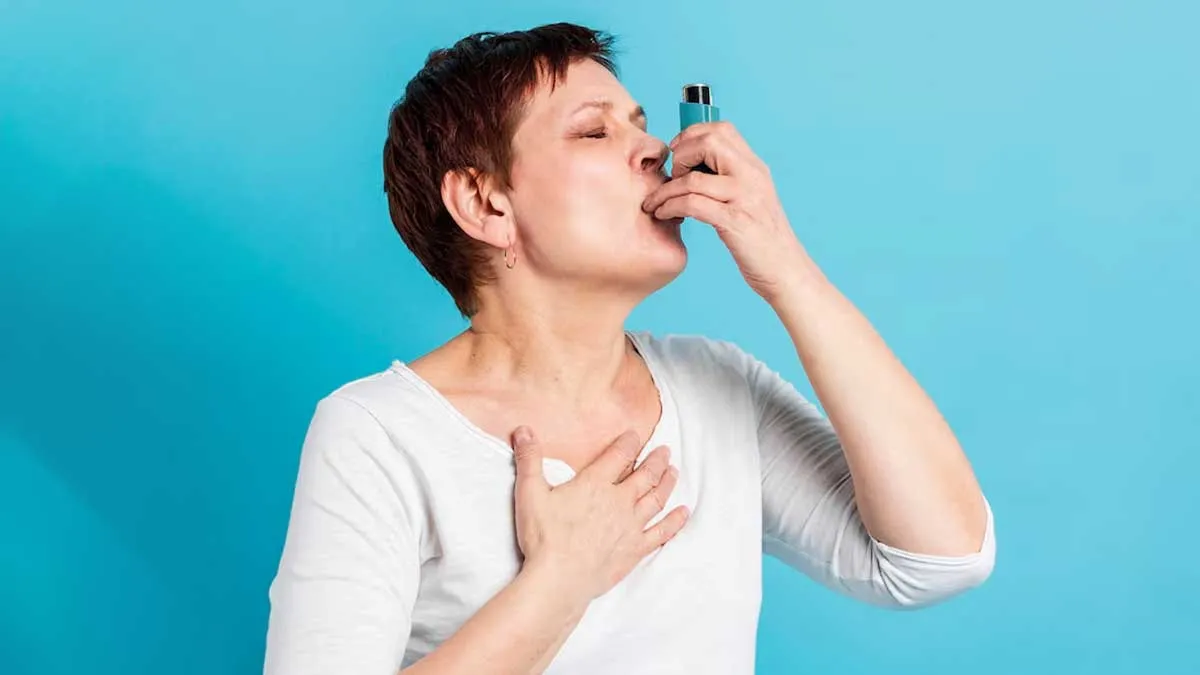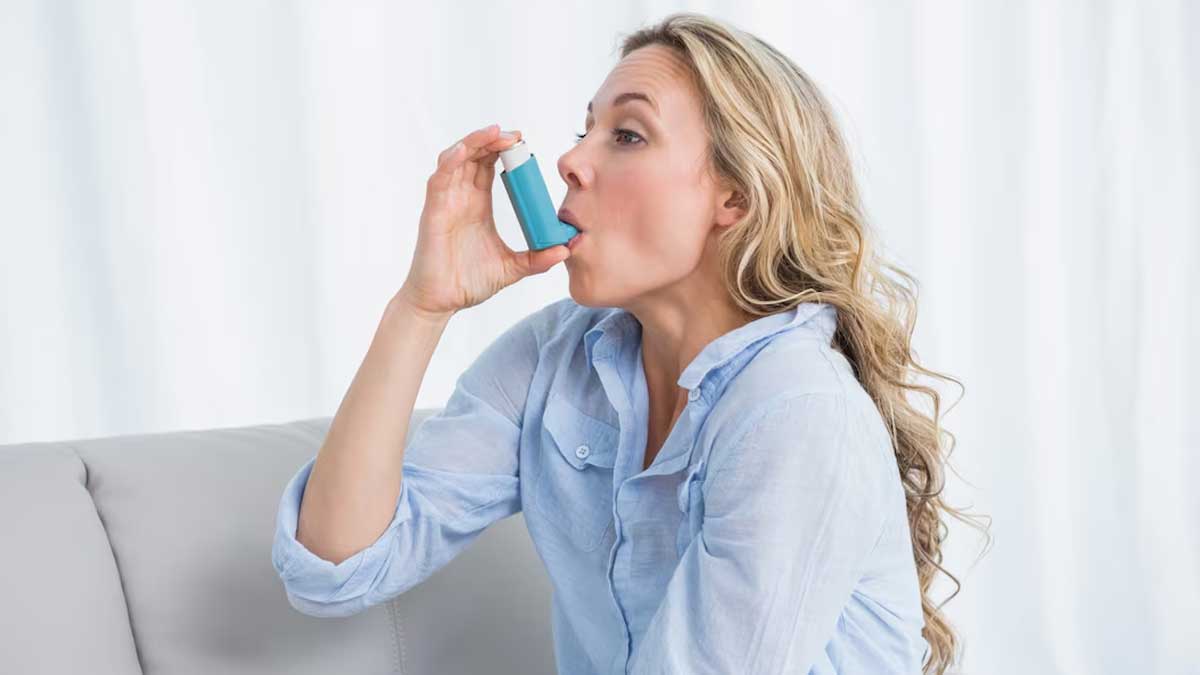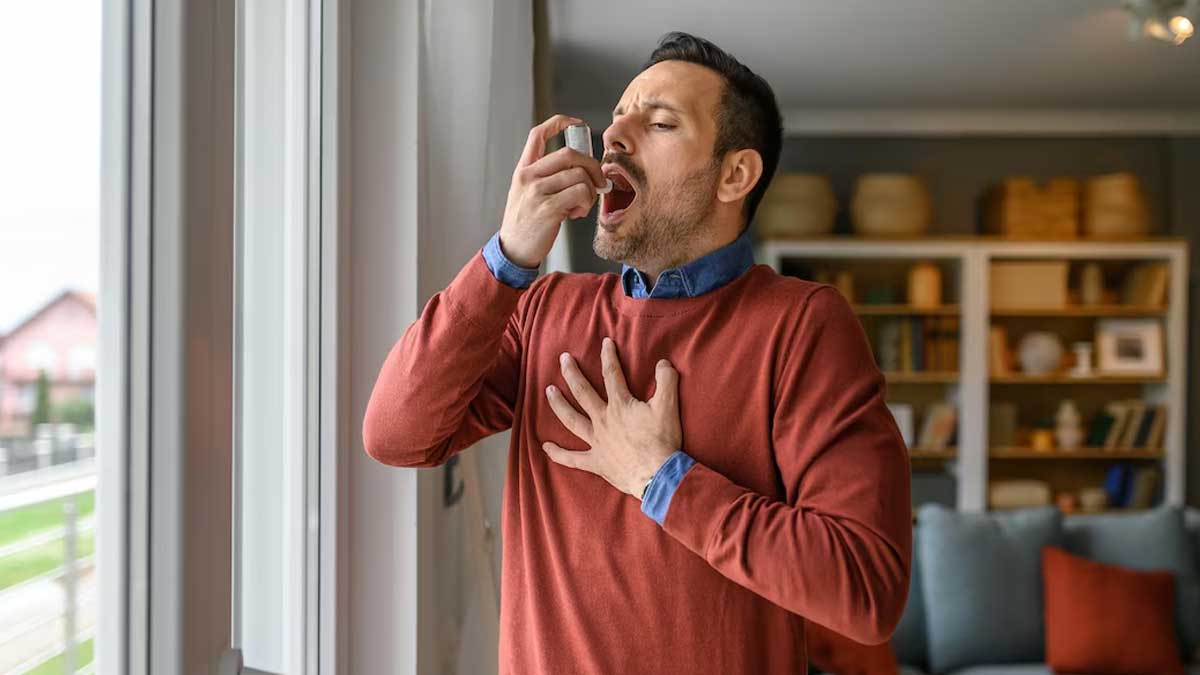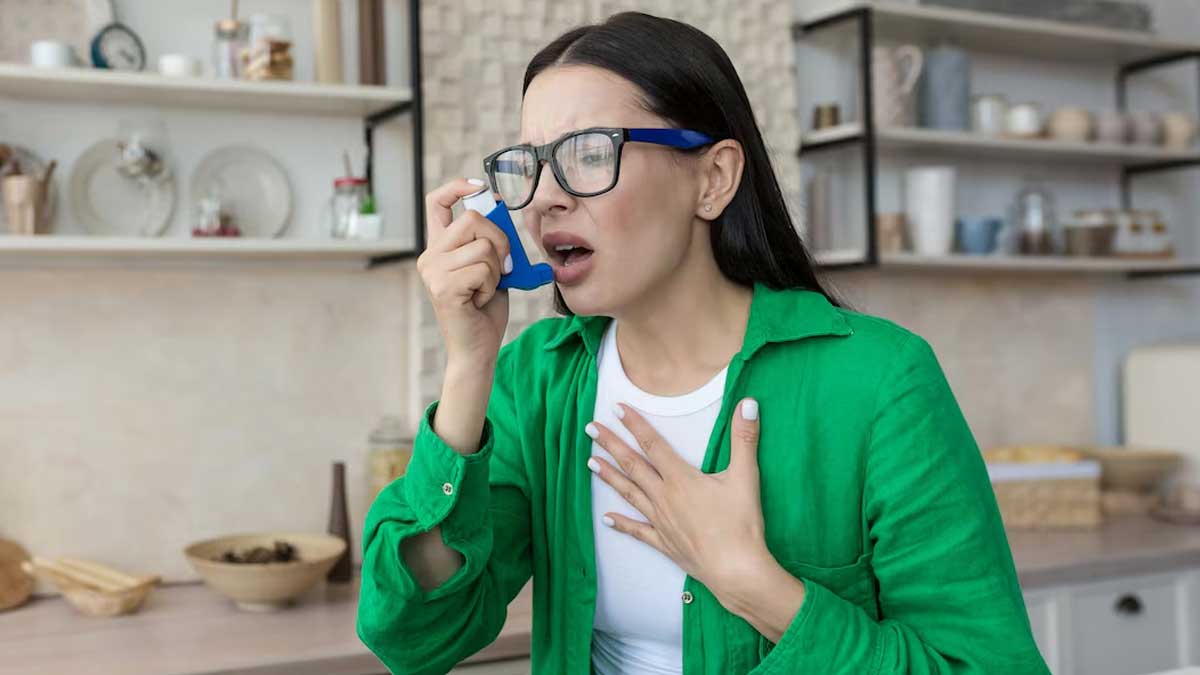
'Laughter is the best medicine,' and it is true. Experts believe laughter is a great form of stress relief. It can enhance the intake of oxygen-rich air, stimulating the heart, lungs and muscles. Additionally, it can activate and relieve stress responses and soothe tension by stimulating circulation and aiding muscle relaxation.
Table of Content:-
However, excessive amounts of anything can be harmful, and too much laughter can be potentially dangerous, especially for people with asthma. Here's everything you need to know.
Also Read: What Is Allergic Asthma? Triggers, Symptoms, And Treatment Options
How Does Laughing Too Hard Impact Breathing In People With Asthma?

In an interaction with the OnlyMyHealth team,Dr Vikas Mittal, Pulmonologist, Director, Wellness Home Clinic and Sleep Centre Pashim Vihar and Director, Department of Respiratory Medicine, C K Birla Hospital, Punjabi Bagh, says, "Laughing too hard can trigger asthma symptoms in some people. This happens because intense laughter causes quick, forceful breathing patterns that can irritate sensitive airways."
This rapid shift in breathing can cause the airways to tighten, making it difficult for air to pass through.
"When you laugh, your breathing rhythm changes. A hearty laugh involves quick inhalations and strong exhalations. An exhalation is already difficult in poorly controlled asthma, and a strong laugh, which can temporarily reduce the amount of air you take in, can make the airway muscles tighten and produce more mucus, narrowing the passageways," Dr Mittal explains, adding that this can trigger coughing or wheezing.
Additionally, the body also sometimes responds to prolonged laughter with a reflex that narrows the airways further, which is why symptoms may appear soon after a burst of laughter.
How Common Is Laughter-Induced Asthma?

Laughter-induced asthma, also known as mirth-triggered asthma, is relatively common, with studies indicating that a significant percentage of asthma sufferers experience it.
One study (2004) published in the Journal of Asthma found that 41.9% of asthma patients surveyed reported laughter as a trigger for their asthma symptoms. Another study reported a prevalence of 31.9% for mirth-triggered asthma.
Is Laughter More Likely To Trigger Asthma Flare-Ups Than Exercising?
“For some,” Dr Mittal said, explaining that it involves sudden, forceful changes in breathing, unlike most exercise, which often allows for a gradual increase in breathing rate.
During laughter, the body doesn’t have the same time to adapt, so the airways may react more strongly. Additionally, laughter is often done in short bursts and may involve holding the breath briefly before releasing it, which can put more strain on already sensitive airways. This sudden demand on the lungs can make symptoms appear more quickly than during a slow warm-up in exercise.
Also Read: Does Your Child's Asthma Flare Up In Monsoons? Here's What You Should Do
How To Prevent Asthma Flare-Ups

According to Dr Mittal, prevention starts with good overall asthma control. This includes:
- Taking prescribed medications regularly
- Avoiding known triggers
- Following an asthma action plan
- For laughter-induced symptoms, some of the precautions include:
- Keep breathing steady when laughing.
- Pausing if you feel your chest tightening
- Avoiding overexertion during emotional moments
- Staying hydrated
- Avoiding allergens before social gatherings
- Using a prescribed inhaler before situations where a lot of laughter is expected (to be done on a doctor’s advice)
Conclusion
Asthma has several triggers, and who would have thought laughter can be one of them? Laughter-induced asthma is relatively common, and one who suffers from it should take necessary precautions.
Dr Mittal concludes by saying that asthmatic patients can reduce the risk of laughter-induced symptoms by keeping their condition well-managed with regular check-ups and medications. "Practising slow, controlled breathing techniques can also help reduce the intensity of airway narrowing during laughter. Additionally, avoiding environments with other triggers, such as smoke, dust, or cold air, during social gatherings can further protect against flare-ups."
Also watch this video
How we keep this article up to date:
We work with experts and keep a close eye on the latest in health and wellness. Whenever there is a new research or helpful information, we update our articles with accurate and useful advice.
Current Version
